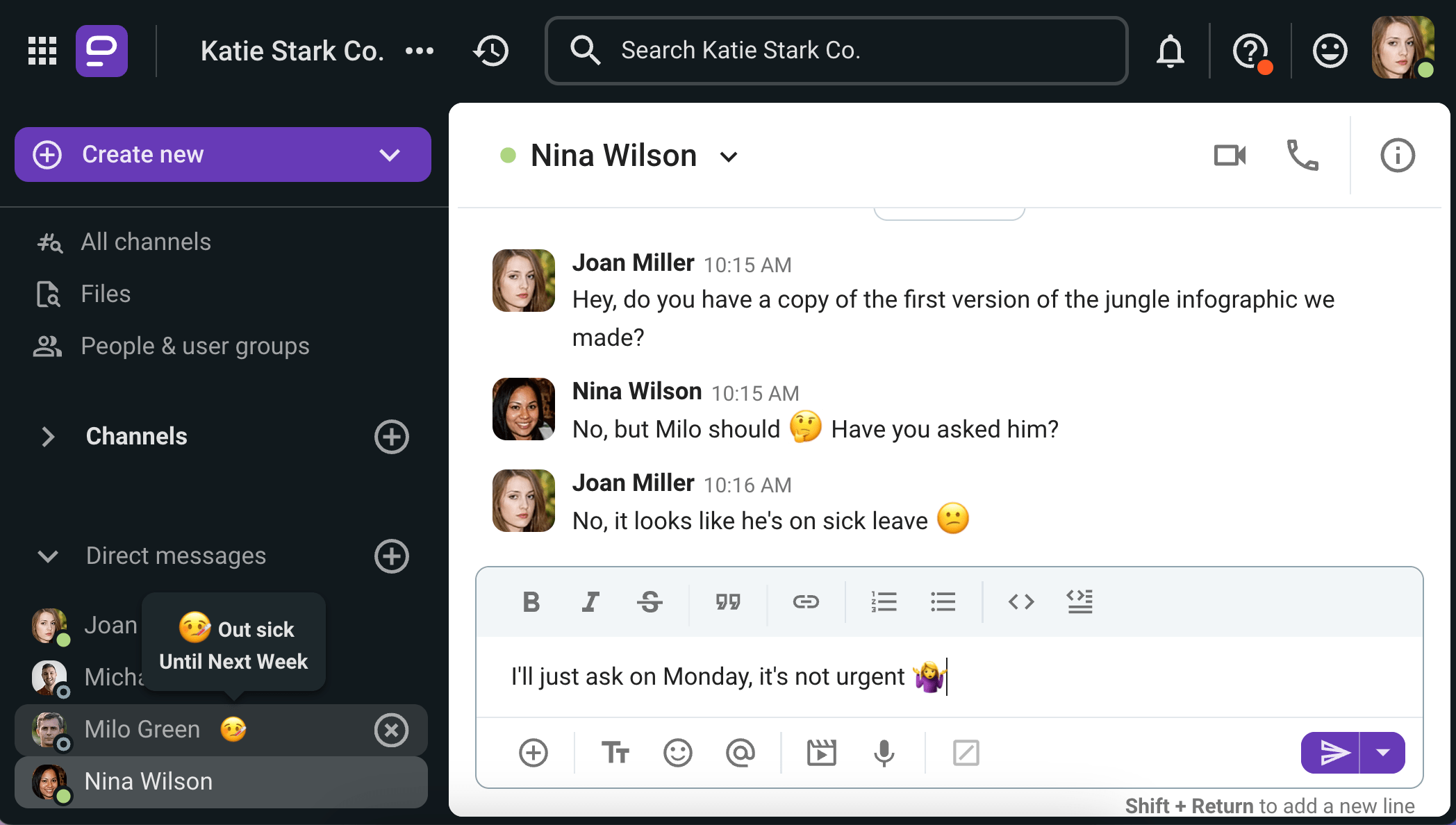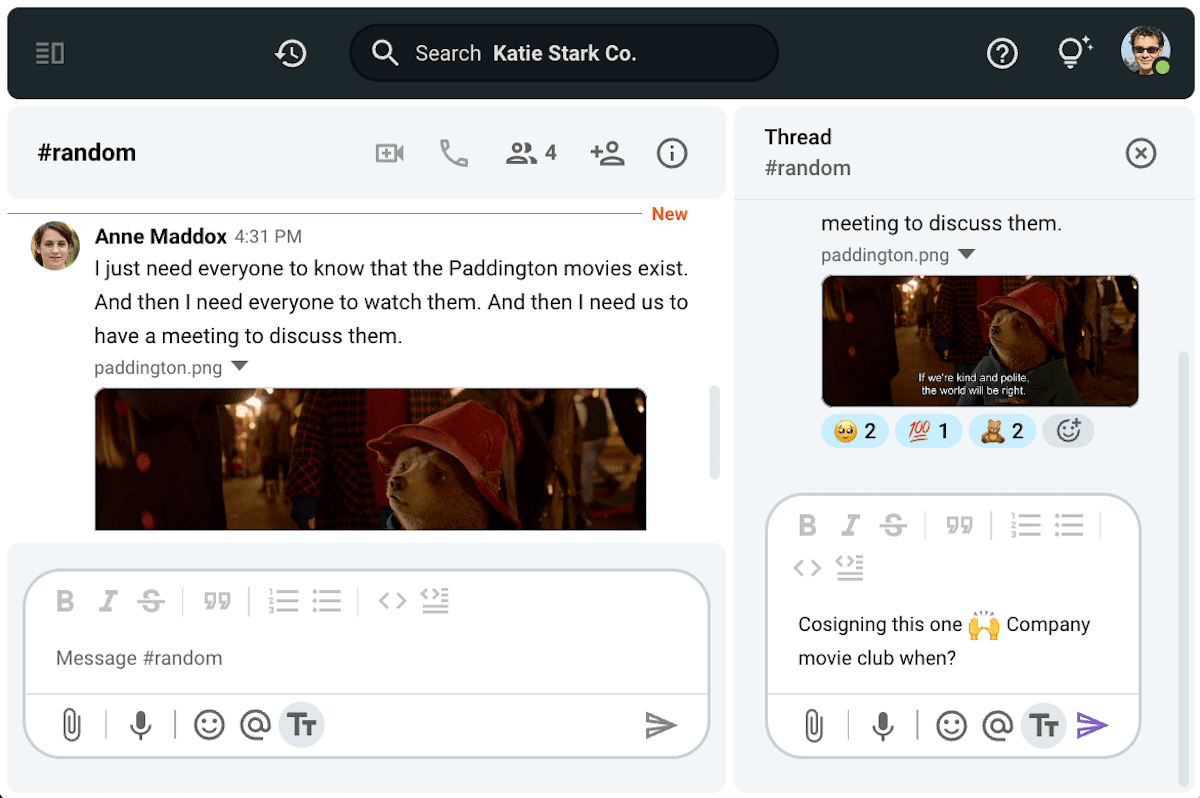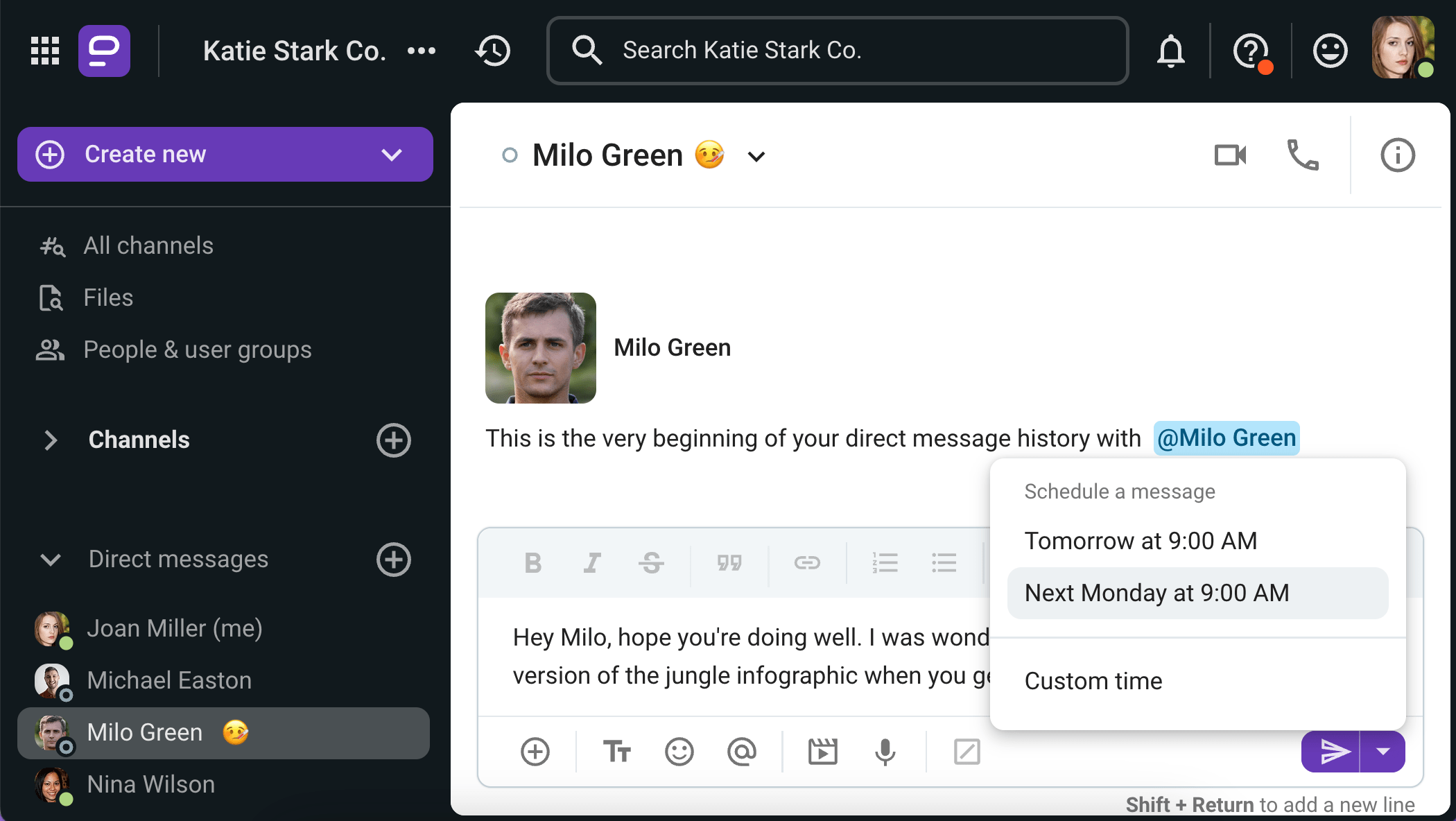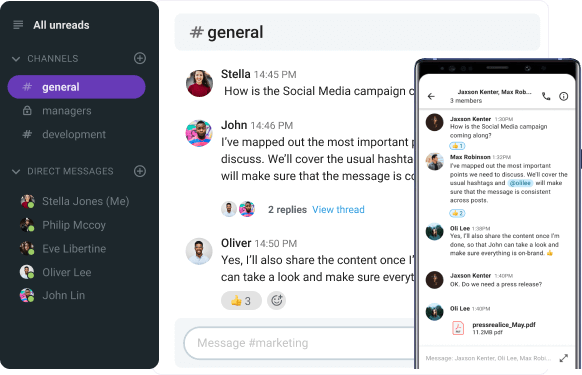When you get promoted to a leadership role, it can feel as though you’ve been handed the keys to your very own mini kingdom.
But, do you have what it takes to rule it?
If you happen to work at a fully remote company, establishing yourself as the leader of your newly acquired realm could be especially difficult.
So, what’s an inexperienced remote manager to do?
Before we get into that, let’s talk about how you can let your higher-ups know that you’re ready for that role.

Table of Contents
Want to be a remote manager? Increase your visibility in the company
If you’re willing to put in the work and communicate your goals with your higher-ups, you’ll see that those coveted leadership positions are more attainable than people think.
According to Richard White, who’s had more than 6 months to adjust to his role as the Team Lead at his current company, it all comes down to making your intentions known:

“I would say visibility is the most important. Nobody sees you at your desk, you aren’t having lunch with people or talking to a colleague while making coffee. So, remote workers need to work a little harder to be visible.
If someone is looking to take on more responsibility, it’s a mixture of demonstrating your skills — e.g. being proactive, delivering quality work, and effective communication — and being upfront that you want more responsibility.
Effective communication includes not making people guess or assume things.”
In other words, your communication skills don’t just come in handy once you step into that managerial role.
They’ll help you get that promotion, too.
💡 PUMBLE PRO TIP
As a remote manager, you’ll likely face some challenges with getting your remote team to communicate. Here’s a guide that might help:
A leap of faith: Transitioning to remote leadership
On the subject of preparing to take on a managerial role, Ivana Fisic, the Content Manager for CAKE.com, explained how she and some of her peers got ready to take on additional responsibilities within the company:

”We had many training sessions and knowledge-sharing sessions with Marija, our Content Director. At that time, Marija was preparing us (the 4 new managers) to be content managers, and, at the same time, we needed to prepare our new editors for their new roles. Moreover, the entire process happened online, because our team works remotely.
Plus, we were hiring new writers, so our new leadership role also involved interviewing candidates, reviewing their assignments, and making decisions about new hires.”
Ivana’s experience shows what the process of career advancement might look like when a company goes through a rapid expansion, elevating existing employees as it brings in new hires.
Fisic even highlighted one particularly challenging aspect of this transition in a remote work environment — getting to know the people she’ll be managing:

“I’d say that the most challenging part of this transition was getting to know all your team members, both existing and new members of the team — getting to know their work habits and communication styles.”
When employers put effort into making sure the next generation of managers is ready to step up by providing the necessary training, even these tricky situations can be easy to navigate.
💡 PUMBLE PRO TIP
Learning to understand different communication styles is an important skill to have not only as a remote manager but as an employee, too. Here’s where you can learn more about that:
Talk that talk: How to communicate as a remote manager
When you become responsible for a team of people, you quickly come to realize the importance of clear and empathetic communication, as noted by Dunja Jovanovic, Content Manager at Pumble:

“Being in a leadership position gives you more responsibility, and the way you communicate should reflect that. I pay much more attention to my communication style and I choose my words more carefully.
I learned that it’s important to find a balance between being an authority and being someone your team can ask for help and guidance. The best way to achieve that is to communicate assertively and openly, while still being patient and understanding. Listening is really important, too — being an active listener is crucial for being a good communicator.”
Richard White was of a similar opinion, highlighting how remote work affects team communication:

“I think that leadership is largely about how you behave and operate, particularly how you treat and talk to your team. These aspects are not affected by being remote.
However, being remote does necessitate good communication. Most communication is written, which is a different skill from speaking verbally, so you have to be mindful of whether you’re being clear enough. You also don’t have the opportunity to walk to a colleague’s desk, or just bump into people around the office, so you have to be intentional with making the effort to talk to people.”
In other words, knowing how to communicate effectively — especially in writing — is essential for those charged with managing a remote team.
So, how can managers apply those communication skills? Let’s talk about it.
Promote effective team communication in Pumble
Promote a healthy culture, even if it’s only in your own team
As a manager, you will have some sway over the way your team communicates.
Sure, some companies already have established communication norms, as was the case with Ivana:

“It was quite helpful that I already knew our company’s culture and the way my managers communicate and collaborate with us. For example, in our company, we don’t message each other after working hours, so that’s something I always kept in mind.”
However, not everyone is lucky enough to work for a company that practices healthy communication.
In those cases, managers have the opportunity to create a positive culture within their own teams. Once again, according to Dunja, it all comes down to making a conscious effort to stay connected:

“Being a remote manager means you rarely see your team in person, which means that communication doesn’t just happen naturally. You need to make a conscious effort to:
- Stay connected with your team,
- Build trust, and
- Create a psychologically safe environment where everyone feels comfortable to share their ideas, opinions, and concerns.
To do that, you need to communicate frequently and transparently, be respectful, and have empathy.”
By using these tips, you could create a bubble of positivity for your team that may one day envelop the rest of the company.
Keep communication open (but don’t overdo it)
Since remote managers don’t have the luxury of sharing a physical space with their teams, they have to go out of their way to make sure that communication channels are open, as Ivana told us:

“Keep your communication open by checking your messages regularly. When working remotely, our only way to communicate with each other is online (by using internal communication software or emails). If your team members work in different time zones, it helps to establish at least 2–3 fixed hours during the day when everyone’s working.
Also, avoid contacting your team members during off hours or when they’re on vacation/sick leave because we all need some time off to rest and recharge.”
White tends to agree, saying that it’s important to be mindful of people’s time:

“Just because we use an instant messaging platform doesn’t mean that every message is seen immediately.”
And that right there is the beauty of asynchronous communication, which tends to thrive in remote teams. No one expects you to answer your messages immediately.

Leave room for casual exchanges
A good remote leader needs to be aware of how working from home tends to reduce team communication to work-related topics, as White told us:

“Being remote, it’s entirely possible to not speak to someone all day. In the office, people will bump into each other in the hallways and have a casual conversation. It’s important to try to incorporate this in conversations as a remote worker too, remembering to have normal conversations and not 100% work 100% of the time.”
In other words, small talk is an essential part of your team communication. But, how can remote managers encourage it on their teams?
Well, they can start casual conversations with members of their team, and encourage them to do the same amongst themselves by:
- Asking ice breaker questions before team meetings,
- Trying virtual team-building activities, and
- Discussing casual topics on your internal messaging app.
Employees, especially new hires, tend to be reluctant when it comes to sending messages through team channels.
On top of that, if they want to have a relaxed chat, they’ll probably go straight to their favorite coworker’s DMs.
That means that managers need to take the lead by bringing relaxed conversations into those official team channels.

💡 PUMBLE PRO TIP
Encouraging your team to have more casual conversation amongst themselves can strengthen collaboration. To learn more about collaboration and how Pumble can help you foster teamwork, check out the following articles:
Connect with your team over Pumble
Get to know your team communication app
Even though most remote employees use some kind of team collaboration software to communicate with their coworkers, not many get to experience their full potential.
In that regard, getting that managerial position is the perfect opportunity to take a peek under the hood of the messaging app their company uses.
To illustrate this point, let’s see how Dunja uses the employee communication app, Pumble, now that she’s a manager:

“I share news and information in our team channel [and] we use the video conferencing feature to hold our team weekly meetings.
I also like Reminder and Schedule Messages tools — thanks to them, I won’t forget to communicate something important, and I also won’t disrupt anyone’s work-life balance.”
Ivana also mentioned message scheduling as one of her favorite features in Pumble:

“Whenever I need to finish my errands, I usually work in two sessions during the day and finish my work in the late afternoon. So, instead of sending messages to my team members at 6 or 7 p.m., I schedule them for the following morning.
I also like the option of setting a status in Pumble. If I need to, for example, go to the bank, I’ll simply set the “Away” status for one or two hours. This ensures better transparency across the team.”
Of course, when managers make a point of using features like message scheduling as a means of respecting their employees’ personal time, the habit often spreads to their teams, too.

Help your remote employees step into leadership roles with Pumble
Once you’ve got that managerial throne, you’ll inevitably find yourself looking for allies in the form of reliable employees you could elevate to lighten the load.
And so, the story begins anew.
As one manager is lifted to a higher position within the company, another must rise to take their place.
Luckily, with the right tools, you can make the process painless for everyone involved.
If you want to train your organizational heirs through Pumble, you can:
- Host leadership workshops through the built-in video conferencing feature,
- Screen share any pertinent documents or presentations while on the group call, and
- Pin important documents in a dedicated leadership training channel so the new generation of managers will be able to easily find them.
And, that’s just the tip of the iceberg.
Pumble is an incredibly powerful yet cost-effective tool designed to make remote work easier for its users.
However, if you really want to set yourself up for success, you could complete the set with the CAKE.com productivity bundle, which includes Pumble as well as Clockify, a reliable time tracking app, and Plaky, an easy-to-use project management tool.
Collaborate and rise through the ranks.








